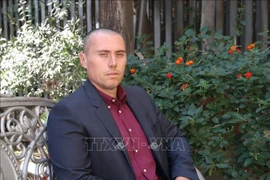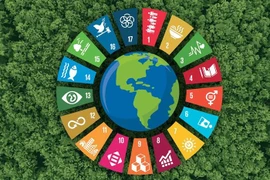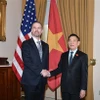Singapore (VNA) - The victory on April 30, 1975, was not only a shining milestone in the history of the Vietnamese people but also a vivid symbol of the global national liberation movement, said Prof. Vu Minh Khuong from Singapore’s Lee Kuan Yew School of Public Policy.
It stood as a powerful testament to the unyielding spirit, unity, and determination of a nation striving for independence and reunification - a strength capable of overcoming any obstacle, Khuong told the Vietnam News Agency (VNA)'s resident correspondents in Singapore.
It is noteworthy that Vietnam did not rest on its laurels but instead embarked on an inspiring journey: from the 1986 ‘Doi moi’ (Renewal) cause to developing increasingly closer relations with countries that were once enemies.
From a global perspective, the professor emphasised that this victory will be viewed with particular admiration and respect by the international community during the 50th anniversary celebrations, especially in the context of the world transitioning to a new development model characterised by the technology revolution, globalisation, and the ongoing fierce conflicts.
Over the past 50 years, Vietnam has grown to a level that many previous generations could not have imagined. Although there are still many areas to improve, it has made very impressive strides, especially thanks to well-chosen strategies in integration and development, stated Khuong.
He highly praised the leadership vision and mindset that have enabled Vietnam to keep pace with the trends of the era, adding that strong shifts, such as making the most of the power of mechanisms and transitioning from outsourcing to digital technology, are helping Vietnam make breakthroughs.
This is the culmination of the achievements made over nearly 40 years of renewal, he said, adding that if Vietnam continues to build on what has been done right and turns limitations into strengths, it will make significant strides in the new era.
The expert also highlighted three crucial factors for Vietnam's development in the new era: nationwide synergy, visionary leaders, and motivating younger generations./.
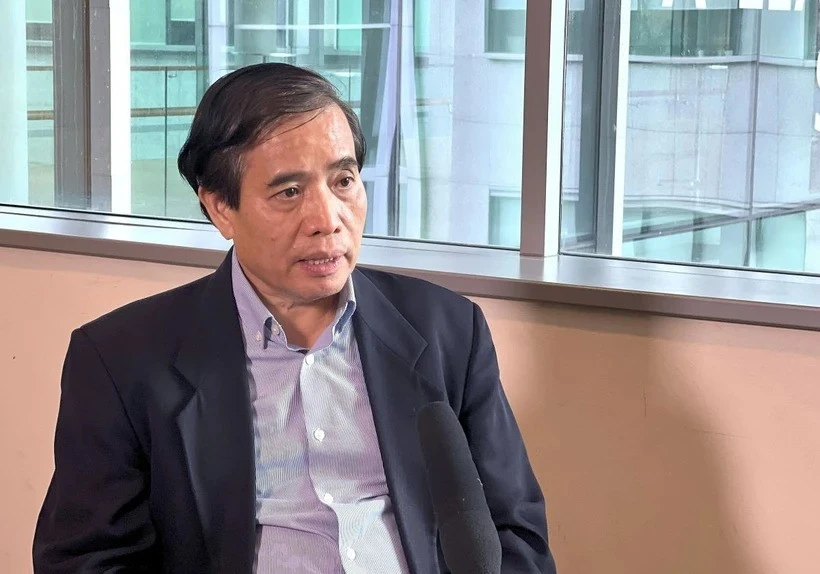
See more
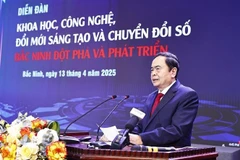
Bac Ninh advised to prioritise investments in developing digital infrastructure
National Assembly Chairman Tran Thanh Man advised Bac Ninh to invest in building a modern data centre, with a particular focus on developing artificial intelligence (AI), to meet the growing demand for data storage and processing, and optimise investment and operational costs while enhancing flexibility, safety, and data security.
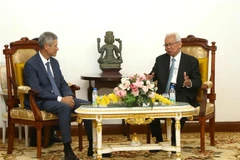
Vietnamese embassy, agencies extend New Year greetings to Cambodian agencies, localities
The Cambodian officials affirmed that Vietnam and Cambodia are brotherly neighbouring countries that always stand shoulder to shoulder and support each other in all circumstances. They also thanked the Party, Government, and people of Vietnam, especially the Vietnam People's Army, for helping Cambodia overthrow the genocidal Pol Pot regime and rebuild the country.
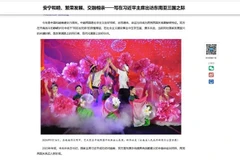
Vietnam, China continue strengthening comrades-plus-brothers ties: Chinese media
As 2025 marks the 75th anniversary of Vietnam-China ties, the state visit to Vietnam by General Secretary of the Communist Party of China (CPC) Central Committee and President of China Xi Jinpin will strengthen the traditional friendship as both comrades and brothers between the two nations and continue to lead the building of the Vietnam-China community with a shared future that carries strategic significance, bringing more benefits to the people of both countries.
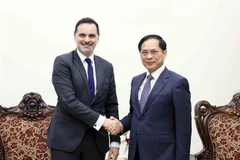
Vietnam values relations with France : Deputy PM
Vietnam and France pledge to fully leverage the EU–Vietnam Free Trade Agreement (EVFTA) and deepen cooperation in priority sectors including infrastructure, transportation, renewable and green energy, science and technology, innovation, aerospace, and development of high-quality human resources, particularly for the semiconductor industry.

Institutional obstacles must be addressed to boost growth: PM
Since the beginning of the term, the Government has held 35 thematic sessions on law-making. Three of these sessions were held in 2025, reviewing and giving feedback on 18 draft laws, ordinances and resolutions.
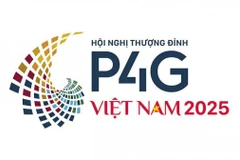
P4G Summit - opportunity for Vietnam to affirm strong commitments to SDGs: Deputy PM
The fourth Partnership for Green Growth and the Global Goals 2030 (P4G) Summit, to be held in Hanoi on April 14-17, is the first multilateral high-level conference in the field of green growth, green transition, and sustainable development hosted by Vietnam.
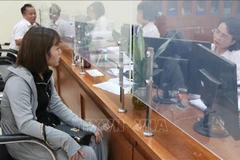
District-level local governments to cease operations from July 1: draft law
Vietnam's local government model will be restructured from a three-tier system to a two-tier one, with the district level eliminated.
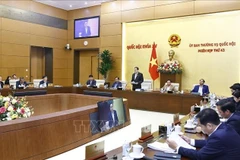
NA Standing Committee to give opinions on Constitution amendment
The 44th session of the National Assembly (NA) Standing Committee will be held in two phases, with the first to last three and a half days from April 14 to April 17 morning, and the second six days and a half from April 22 to the morning of April 28.
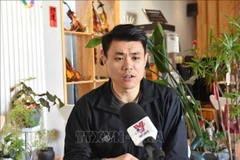
China top leader's visit significant in fostering bilateral ties: Chinese expert
General Secretary of the Communist Party of China (CPC) Central Committee and President of China Xi Jinping's upcoming state visit to Vietnam bears significance for deepening the friendship between the two Parties and two States.
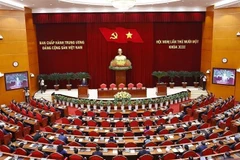
Party Central Committee’s 11th plenum concludes with agenda completed
He said that the Party Central Committee reached broad agreement on proposals concerning the continued restructuring of the political system’s organisational apparatus, rearranging administrative units and organising local administrations with provincial and communal levels.

50 years of national reunification: President Ho Chi Minh’s great dream
According to Arce, this victory - the military win of a largely agrarian people over the most powerful empire on earth was not merely a defeat of imperial arrogance. It was the triumph of an indomitable nation, rich in history and culture, that refused to be subdued.
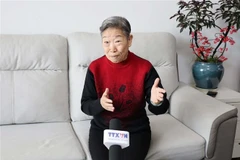
Vietnam-China ties to last through generations: Chinese friendship figure
Yu held that the top leader of China's trip is more than diplomatic protocol, it symbolises the deep affection of the Chinese people for their Vietnamese neighbours.
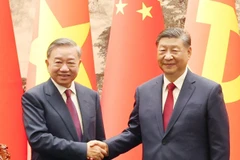
Chinese top leader's visit bears strategic significance: Deputy PM
The upcoming state visit to Vietnam by General Secretary of the Communist Party of China (CPC) Central Committee and President of China Xi Jinping is expected to be a success in all aspects, marking a new milestone in the friendly neighbourliness and comprehensive strategic cooperative partnership between the two countries, as well as the Vietnam-China community with a shared future that carries strategic significance.
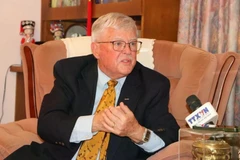
Australian scholar praises Vietnam’s remarkable 50-year transformation
Vietnam must always be able to evaluate its own strengths and weaknesses while pursuing a long-term strategic vision. The country can learn from other countries, but it must always pursue its national interests. This requires unity among the population, political stability, constant adaptability and critical innovation.
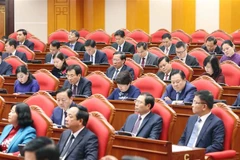
Party Central Committee’s 11th plenum focuses on apparatus restructuring
The Party Central Committee discussed in groups issues regarding preparations for the 14th National Party Congress, and the elections of deputies to the 16th National Assembly and People’s Councils at all levels for the 2026–2031 tenure on April 11.
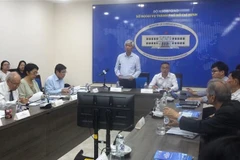
HCM City thrives after 50 years of effective external policy: Symposium
HCM City has issued a strategic foreign affairs roadmap to 2030, with a vision to 2045, built on three key pillars: diplomacy for sustainable development, diplomacy aligned with global trends, and diplomacy that creates new value.
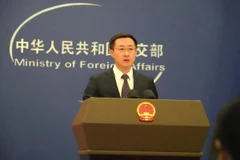
China vows stronger ties with Vietnam ahead of top leader's state visit
Top Chinese leader Xi Jinping's Southeast Asia tour, his first overseas trip of the year, holds major significance for fostering the comprehensive development of China’s relations with Vietnam, Malaysia, and Cambodia, as well as with ASEAN as a whole.
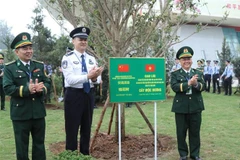
Young Vietnamese, Chinese border officers strengthen exchange
Young Vietnamese, Chinese border officers exchanged views on joint border management, legal education, and coordination in natural disaster and epidemic prevention and control.
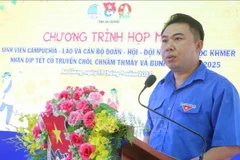
Vietnamese, Lao, Cambodian students foster friendship, solidarity
The Mekong Delta province of An Giang’s Youth Union on April 11 held a gathering to mark the traditional New Year festivals of Cambodia (Chol Chnam Thmay) and Laos (Bunpimay).

☕ Afternoon briefing on April 11
The following is a brief review of the day’s events as reported by the Vietnam News Agency.


